The Co-Creative Museum: Social Agency, Ethics, and Heritage
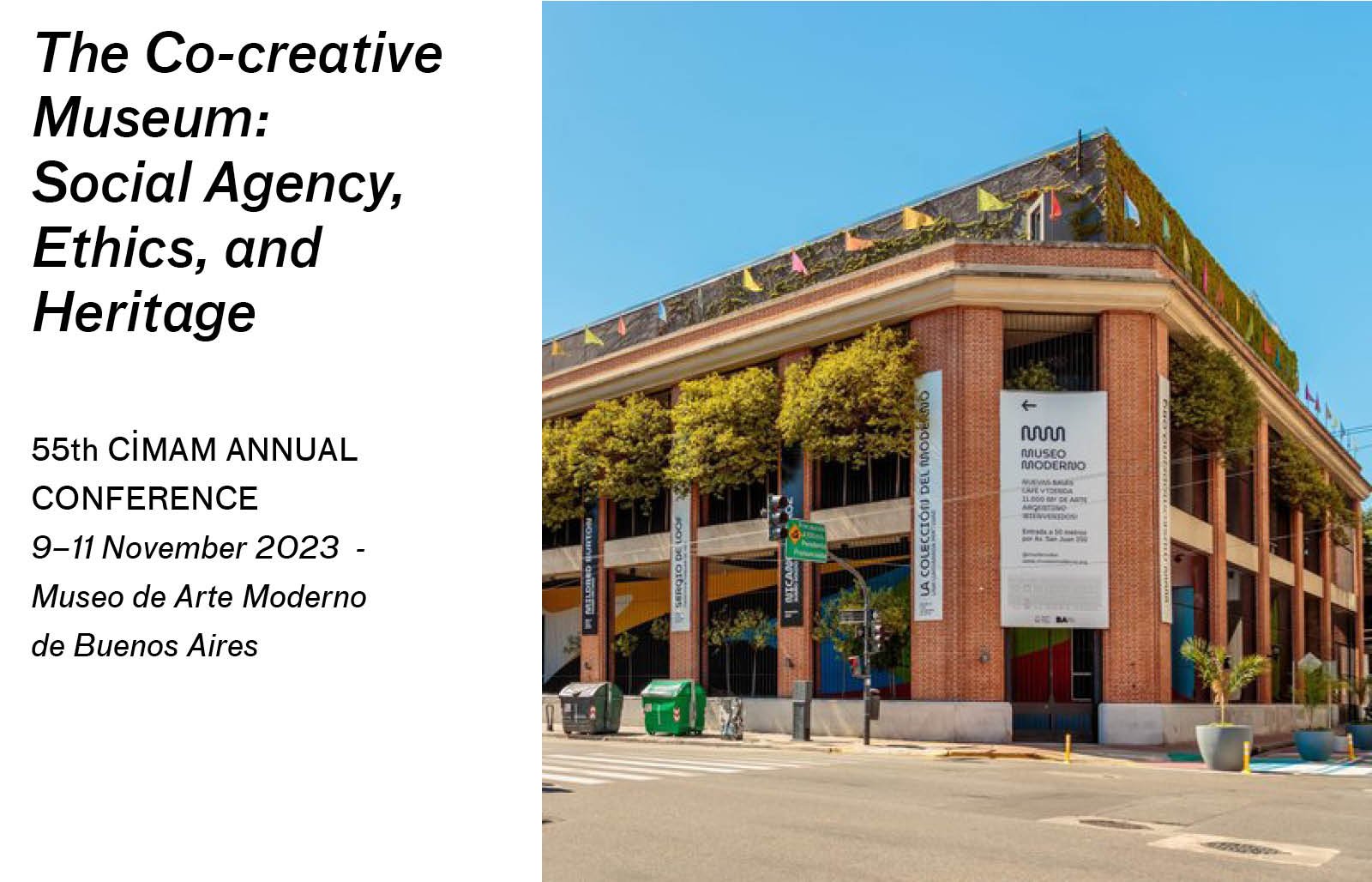
55th CIMAM ANNUAL CONFERENCE IN BUENOS AIRES
9–11 November 2023
Museo de Arte Moderno de Buenos Aires, Argentina
What is a co-creative museum? How can a museum activate and strengthen mutuality among its many component communities? When is it legitimate to speak about the collective creation of programmes, languages and tasks in an institutional context? Is the social a new museum mandate? What is the museum’s educational role in the production of knowledge and in the pedagogical and dialogical process? How can the construction and care of patrimony and heritage find a correlation in the relationships the museum fosters with its diverse communities? How can the museum engage with the social processes affecting our immediate communities? ‘Co-creation’ is a term largely appropriated by the corporate sector, yet the participation in the reciprocal making of meaning is a fundamental task of the contemporary museum.
For the first time in CIMAM’s history, the Conference will focus on the social role of the art museum. This function lies at the natural heart of museum practices in Latin America, where many museums vigorously take up the mantle of responding to lesser developed economic contexts in which social disparity, inequality and discrimination are the order of the day. Cultural institutions in this region are highly experienced in collaborating with artists to position the arts as a vehicle for the development of the imagination, the expansion of concepts and forms of education, the production of communal and individual knowledge, and resistance to authoritarianism; in short, as a path of effective micropolitics towards concrete social transformation, community-building and the promotion of social justice.
The need to empower museums in a context of exponential vulnerability has today extended to the whole world: institutions can feel vulnerable over non-existent codes of governance and ethics, and their lack of clarity or effective application, or over insufficient financial resources that are either too weak to support operations in less developed contexts or too scarce to face the competition of the art market in the more economically advanced contexts. Museums that have been able to function and prosper in unfavourable conditions have a great deal to offer and a great deal to say. Furthermore, inequity in human and natural rights is a trait that has become widely visible during the Covid19 pandemic: gender, economic and religious forms of discrimination, racism and hatred are on the rise, challenging all parameters of stability. The current levels of distress in most societies demand that museums privileged enough to work with living artists are rising to the occasion to develop fast, flexible and effective responses and methodologies that can bring about social and educational micropolitical change by grounding the force of their actions in the diversity and intrinsic freedom of thought, expression and creativity that is at the heart of artistic practice.
This Conference will, transversally, address ethics, values and methods as three core concerns of museum practices today. We are interested in rethinking how we do what we do and in opening up dialogue. The Conference is hosted by Argentina’s dynamic artistic community against a backdrop of economic adversity, a community that has so much to say about how to do more with less and tirelessly turns to the arts as a vehicle for touching and transforming lives.
- DAY 1: Thursday 11 November
How Can Museums Embrace their Social Responsibility? A Question from the Americas
How can museums become effective sites for playing out, debating, and tackling the issues raised by societies? How can museums be affirmed as brave spaces for freedom of expression, the development of honest inquiry, and the expansion of creative imaginations as they occupy their roles as producers of knowledge in dialogue with artists and civil societies? On this first day of the Conference, we look forward to setting forth holistic conceptions around how the museum can effectively make communities’ concerns its own in order to effectively respond and accompany their searches by shouldering social, cultural, and educational – and decolonial! – responsibilities.
- DAY 2: Friday 10 November
The Role of Museums in Communities, Education, and Accessibility
The museum can be an active agent in understanding art partly as a vehicle for the construction of knowledge. What is the role of the arts and artists in education as a whole, and what is the role of education as endorsed by the museum? How can the museum become a catalyst for new notions of education? How can museums foster co-creative relationships with and among artists and the local communities of situated contexts? Over the course of Day 2, we access the experiences and philosophies of specialists in education, accessibility and mental health as they weave the arts into their own practices of education, care and healing.
- DAY 3: Saturday 11 November
How Can Museums Collect, Preserve and Protect Cultural Heritage While Creating New Communities?
Day 3 is intended as an organic continuation of the debates and discussions begun during the second day of the Conference. Museums have a responsibility to preserve but also to honour situated histories, materials and archives that embody past heritages and steer us towards different futures. Museums are learning not only to preserve, but to become and remain respectful to the premises and values of the communities which such materials belong to. Can we implement different methodologies to question canonical and normative processes and so disrupt colonial legacies? Can we escape the logic of capitalism in our collections? Can we challenge our acquisition criteria and our conservation policies to accommodate the well-being of our planet? Can restitution be seen as a form of necessary healing and an opportunity to initiate a different dialogue with the past? What are the future mechanisms to implement the museum’s response in the event of wars or emergencies? Naming problems and proposing different approaches and methods has a generative effect by enabling us to collectively reflect on a museum capable of learning and transmitting how heritage is always related to an idea of the social situated not only in the past but in the future.
2023 Contents Committee
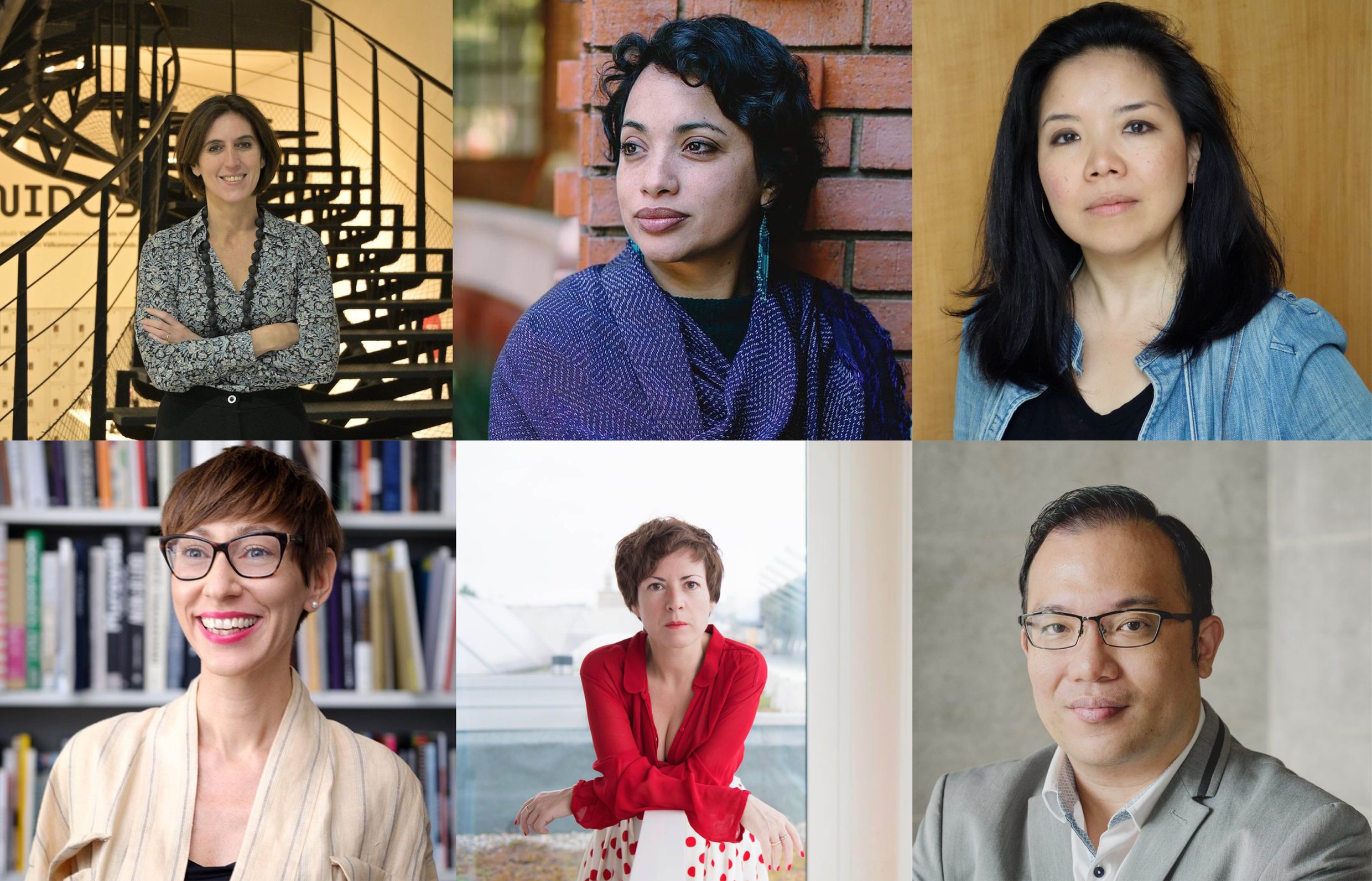
The contents of the 2023 Annual Conference have been thought and designed by the Contents Committee consisting of CIMAM Board members:
- Victoria Noorthoorn, (Chair of the Contents Committee), Director, Museo de Arte Moderno de Buenos Aires, Argentina.
- Amanda de la Garza, Director, Museo Universitario de Arte Contemporáneo (MUAC), Mexico City, Mexico.
- Clara M Kim, Chief Curator & Director of Curatorial Affairs, MOCA, Los Angeles, United States of America.
- Malgorzata Ludwisiak, Artistic Director, The Museum of Modern Art in Warsaw, Warsaw, Poland.
- Chus Martínez, Director, Art Gender Nature Institute HGK, Basel, Switzerland.
- Yu Jin Seng, Deputy Director (Curatorial & Research), National Gallery Singapore, Singapore.
CIMAM's 2023 Annual Conference Hosts and Sponsors
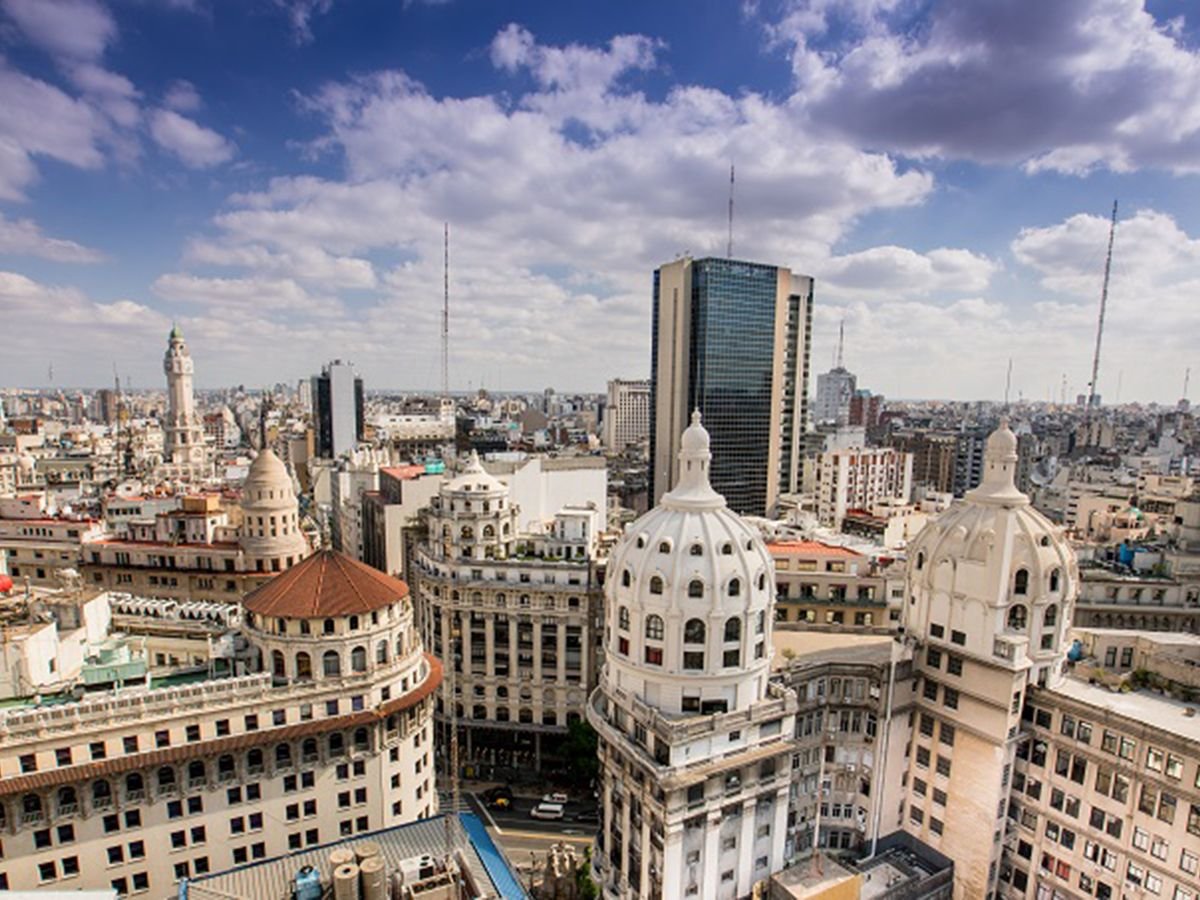
The Museo de Arte Moderno de Buenos Aires, under the auspices of the Government of the City of Buenos Aires, is the main host and organizer of the next Annual Conference.
The program and production of the 2023 Annual Conference are being made also possible thanks to the generous support of its Allied Partners, essential contemporary art museums, and foundations in Buenos Aires: Fundación Ama Amoedo and Colección Amalita, Fundación Proa, and Malba (Museo de Arte Latinoamericano de Buenos Aires).
Planning Your Trip to Buenos Aires
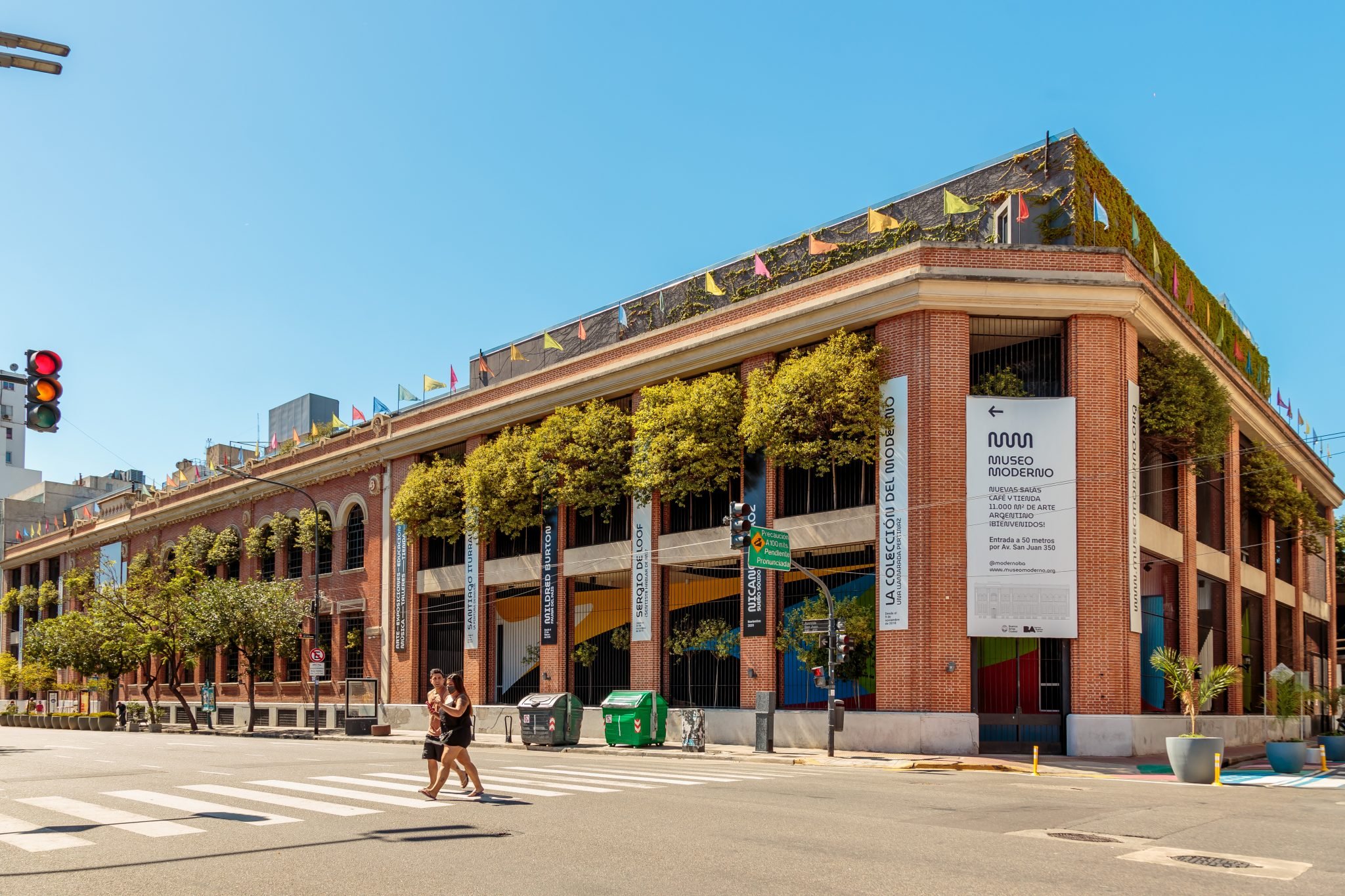
The 55th CIMAM Annual Conference’s presentations and debates will be held in the mornings in the Auditorium at the Museo Moderno and will include ample time for participation and collective conversations. For the first time, simultaneous translation to and from Spanish and a crèche for children will be offered during the morning sessions. During the afternoon and evening sessions, a rich program of visits will enable attendees to experience first-hand the vastness of Argentina’s truly diverse and multi-disciplinary art scene, involving not only the visual arts but literature, theatre, film, dance, and experimental music. On Day 1, we will visit the booming Southern Art District; on Day 2, we will attend the various museums along Museum Mile; while Day 3 is being designed to offer tailor-made customized visits and rendezvous for each of the 200+ professionals attending. With this in mind, we are asking all those traveling to fill in a questionnaire and will make ourselves available to provide information and feedback on artists, trends, movements, institutions, archives, and projects. Starting in June, we will invite all attendees to access a map/archive of the Argentinian scene, modern and contemporary, which we are drawing up, and of the exhibitions and artists on view in November. We would therefore strongly encourage you to stay in Buenos Aires for a few days longer at the height of springtime to take full advantage of a rich program in which all actors in the Argentinian capital will be waiting to welcome you!
For further information, please contact: infocimamconference@museomoderno.org
The Post-Conference Salta Tour
We invite you to reserve a ticket for the Post-Conference Tour to Salta in the North-West of Argentina, November 12–13.
Other Possible Destinations
We strongly recommend a layover in São Paulo to visit the International São Paulo Biennale and the plethora of exhibitions the city is host to at that time of year. A trip to Rio de Janeiro, or Belho Horizonte to visit the Inhotim, or Porto Alegre, or Bahia or so many other Brazilian scenes is, it goes without saying, always rewarding!
We here in Argentina will be happy to advise you on possible further travel destinations within the country. You may like to consider visiting the rich cultural scenes of Córdoba City, Rosario or Santa Fe, the Iberá Wetlands, the Patagonian Lakes, the Southern traditions of Ushuaia, the wine scenes of Mendoza or the extraordinary landscapes of San Juan, to name just a few.
And, as denizens of the Southern Cone, we can also provide enthusiastic and well-informed advice should you consider extending your trip to Uruguay, Chile, Bolivia, and Paraguay!
Travel Grants to attend CIMAM's 2023 Annual Conference
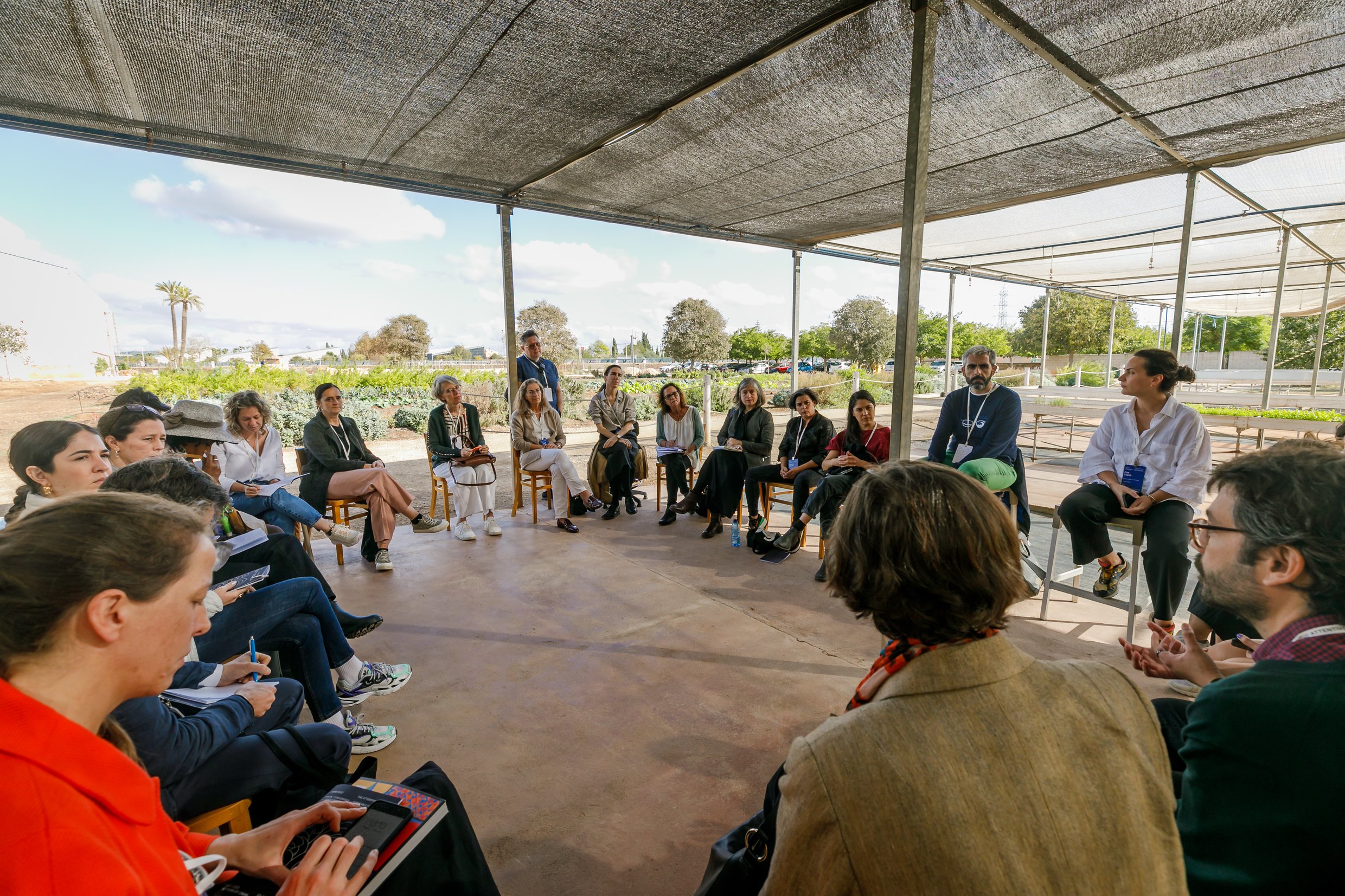
CIMAM is getting everything ready to launch very soon a call for applications for its 2023 Travel Grant Program edition that will support the attendance of modern and contemporary art museum directors as well as curators and researchers in need of financial help to attend CIMAM’s Annual Conference.
Stay tuned for more updates on eligibility, and deadlines to ensure you don't miss this opportunity!
For further information about CIMAM's Travel Grant Program please contact travelgrants@cimam.org
Conference Tickets
Registration for the Annual Conference and Post-Tour will open in May.
Attendance at the 3-day conference (9-11 November)
€350.00 CIMAM Member (€490.00 Non-CIMAM Member)
— Access to all conference sessions.
— Conference lunches, dinners, and refreshment breaks.
— Access to organized visits.
— Coach service to and from planned visits.
— Courtesy tote bag, lanyard, badge, and pen.
— Profile at the Who is Who.
— Accommodation and airfare are not included.
Attendance to the optional 2-day Post-Tour to Salta (12-13 November)
€490.00 Post-tour to Salta
— Return economy flight from Buenos Aires/Salta.
— 1-night accommodation (check-in 12/check-out 13 November).
— Lunches, dinners, and refreshment breaks.
— Coach service and access to and from organized visits.
For further information about registration to the Annual Conference please contact conference@cimam.org